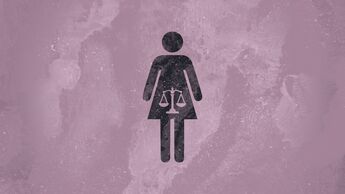
It’s no secret that the abortion lobby want to change our abortion laws in Britain. However, what many people don’t know is that the change they are seeking won’t just affect women who have abortions—it will affect all pregnant women.
Why is this? Well, the statutes the abortion lobby want to repeal are sections 58 and 59 of the Offences Against the Person Act 1861 (OAPA) and the Infant Life Preservation Act 1929 (ILPA).
The OAPA protects foetal life and makes it an offence to terminate that life. What a lot of people don’t realise is the Abortion Act 1967 sets out a range of exceptions to the 1861 Act, such as allowing abortion up to 24 weeks under a number of Grounds. Tragically, the effect of this has really been abortion on demand up to 24 weeks and 9.5 million abortions since 1967.
The ILPA was designed to close a loophole in the law and it created an offence of ‘child destruction’, thereby protecting babies from the point of viability up to birth. This means, whilst it isn’t possible to legally 'murder' a preborn baby, it is possible to secure a conviction for child destruction if it is capable of being born alive under this Act.
Once these laws are repealed, a preborn baby will lose all remaining legal protection. A pregnant woman will undergo the devastating loss of her baby, but she will receive no justice under the law for that loss.
These laws help women too
What is crucial to know about these Acts is that they not only serve to protect preborn babies, they also protect women.
For example, Section 58 of the OAPA states that if a pregnant woman is attacked or poisoned by a third party and she miscarries, her perpetrator can be prosecuted for the miscarriage. In a real life scenario, this might look like someone slipping abortion pills into a woman’s sandwich without her knowledge or consent (this has actually happened) and her baby dying as a result.
Clearly a woman in such circumstances needs the law to give both her and her baby justice. In fact, the overwhelming majority of prosecutions under the OAPA are for these kinds of offences, demonstrating the law is actually serving to protect women—rather than women being prosecuted themselves.
Essentially, this Act recognises that an attack on a pregnant woman isn’t just about the injury done to her; it is also about the loss of her baby.
Decriminalisation will deny justice for women
But here’s the rub: if decriminalisation gets through and section 58 of the OAPA is repealed, there will be no explicit criminal penalty for causing a woman to miscarry. So the woman in the sandwich scenario above will be denied justice despite this blatant abuse and coercion.
Furthermore, if the ILPA is repealed, there will be no criminal penalty for child destruction for a preborn baby right up to term. The law in this area is already failing to get justice for women. Convictions are incredibly rare, despite the number of attacks on pregnant women, because it is often too difficult to prove that when someone attacks or poisons a woman that they also intended the baby’s death. Decriminalisation will make this impossible.
After decriminalisation, there will no offence that will recognise a pregnant woman losing her baby. There is no explicit offence of forced abortion elsewhere in the law which means that the only offence in such a situation will be injury to the pregnant woman, such as battery, GBH or poisoning offences. The baby’s loss won’t be recognised as an extension of her injuries.
Once these laws are repealed, a preborn baby will lose all remaining legal protection. A pregnant woman will undergo the devastating loss of her baby, but she will receive no justice under the law for that loss.
The problem is that decriminalisation sounds good on paper to those who believe the rhetoric that abortion is merely about a woman’s right to choose. What so many don’t realise is that our choices do not exist in a vacuum: they affect those around us and could unalterably change our society.
Decriminalisation can’t provide any solutions to this problem
To cover this gap in the law, pro-abortion MPs may propose to introduce an offence of non-consensual termination of pregnancy. Whilst making this offence explicit in the law would be an improvement, and this would cover all stages of gestation, the problem is this doesn’t actually offer a real solution to women who have lost their babies.
This is because those who want abortion decriminalised know that it is essential to their cause that any protection of preborn life be removed from the law. A preborn baby can’t be a person in some cases, but not in others. Thus any forced abortion offence will merely be based on whether the woman consents to the abortion or not—rather than about the loss of her baby.
This is undoubtedly not what any pregnant woman would want. Any woman who loses her baby will want full recognition of that loss. To deny her baby justice, to deny the personhood of that baby—that is deeply offensive and just aggravates the pain of her baby’s death. It’s no wonder that parents of stillborn babies have been fighting for years for birth certificates, hoping to prove that their baby existed before 24 weeks. They are the casualties of Britain’s abortion laws.
If decriminalisation of abortion is successful, make no mistake: it won’t do anything to actually help women. For a small percentage who believe terminating a baby is an essential part of women’s progress, the rest of us will lose recognition of the personhood of our babies. For those who suffer the tragic loss of a much wanted baby this way, justice will be denied them.
Decriminalisation does not stand in solidarity with all women
Yes, 1 in 4 pregnancies end in abortion. But that means that 3 in 4 babies won’t be aborted. The vast majority of the parents of those babies will clearly not want to sacrifice the recognition and protection of their baby, merely to allow others to have the choice to terminate theirs. The problem is that decriminalisation sounds good on paper to those who believe the rhetoric that abortion is merely about a woman’s right to choose. What so many don’t realise is that our choices do not exist in a vacuum: they affect those around us and could unalterably change our society.
If decriminalisation of abortion is successful, make no mistake: it won’t do anything to actually help women. For a small percentage who believe terminating a baby is an essential part of women’s progress, the rest of us will lose recognition of the personhood of our babies. For those who suffer the tragic loss of a much wanted baby this way, justice will be denied them. We’re told abortion is just a personal decision, but this is naïve at best: it has implications for the rest of us, and we need to take heed of this and stop decriminalisation before it’s too late.


Share story
Why all pregnant women should be concerned about a change to Britain’s abortion laws